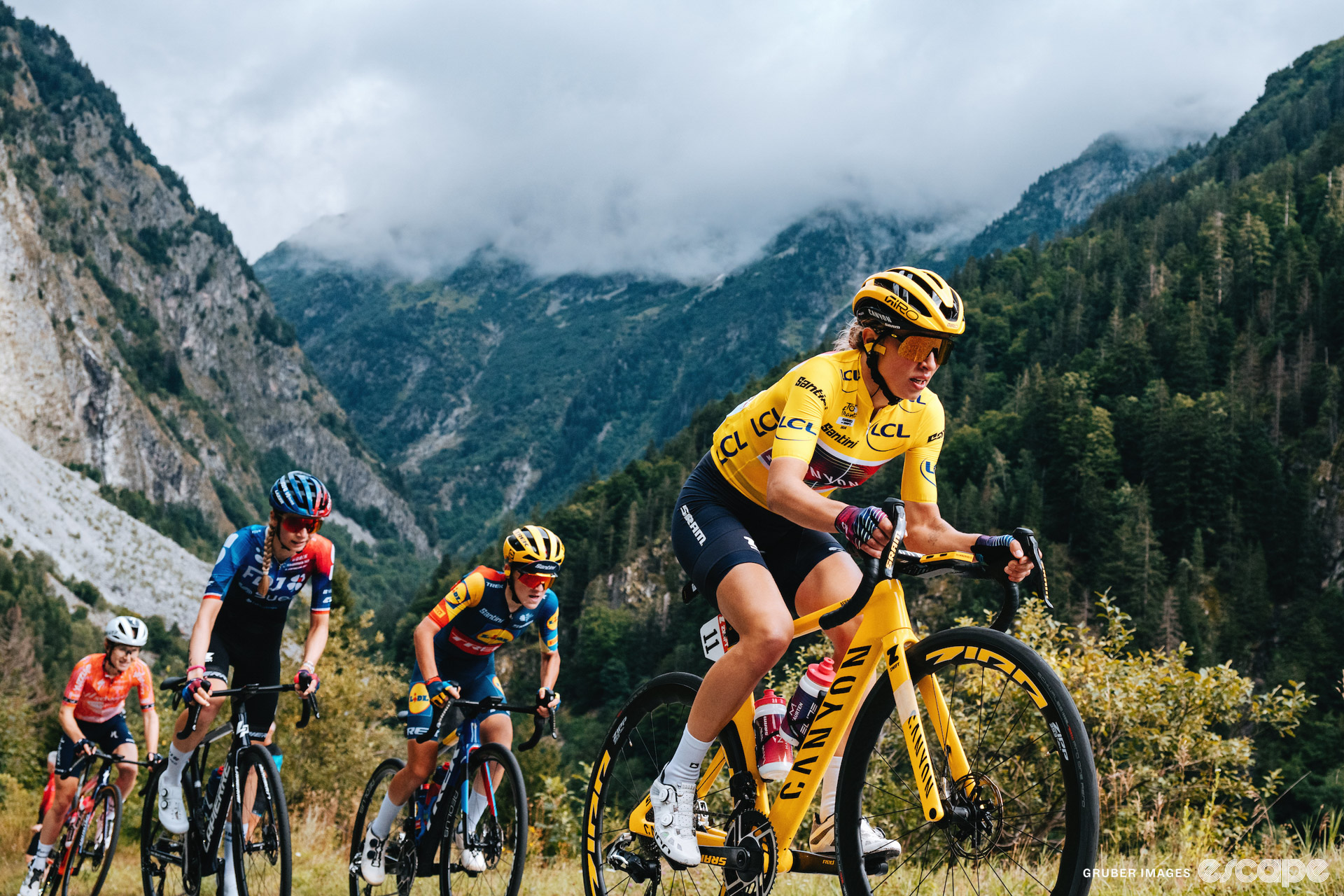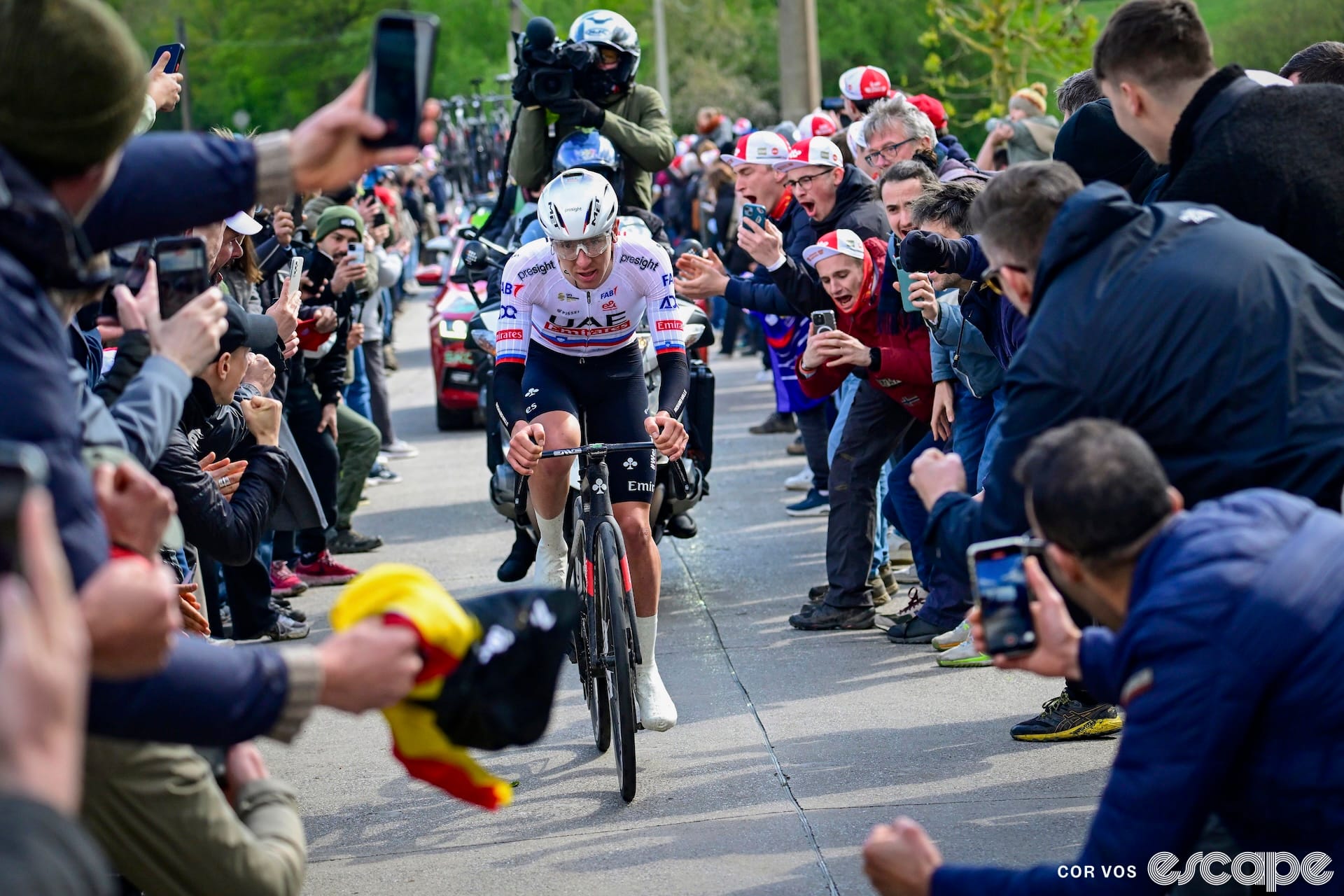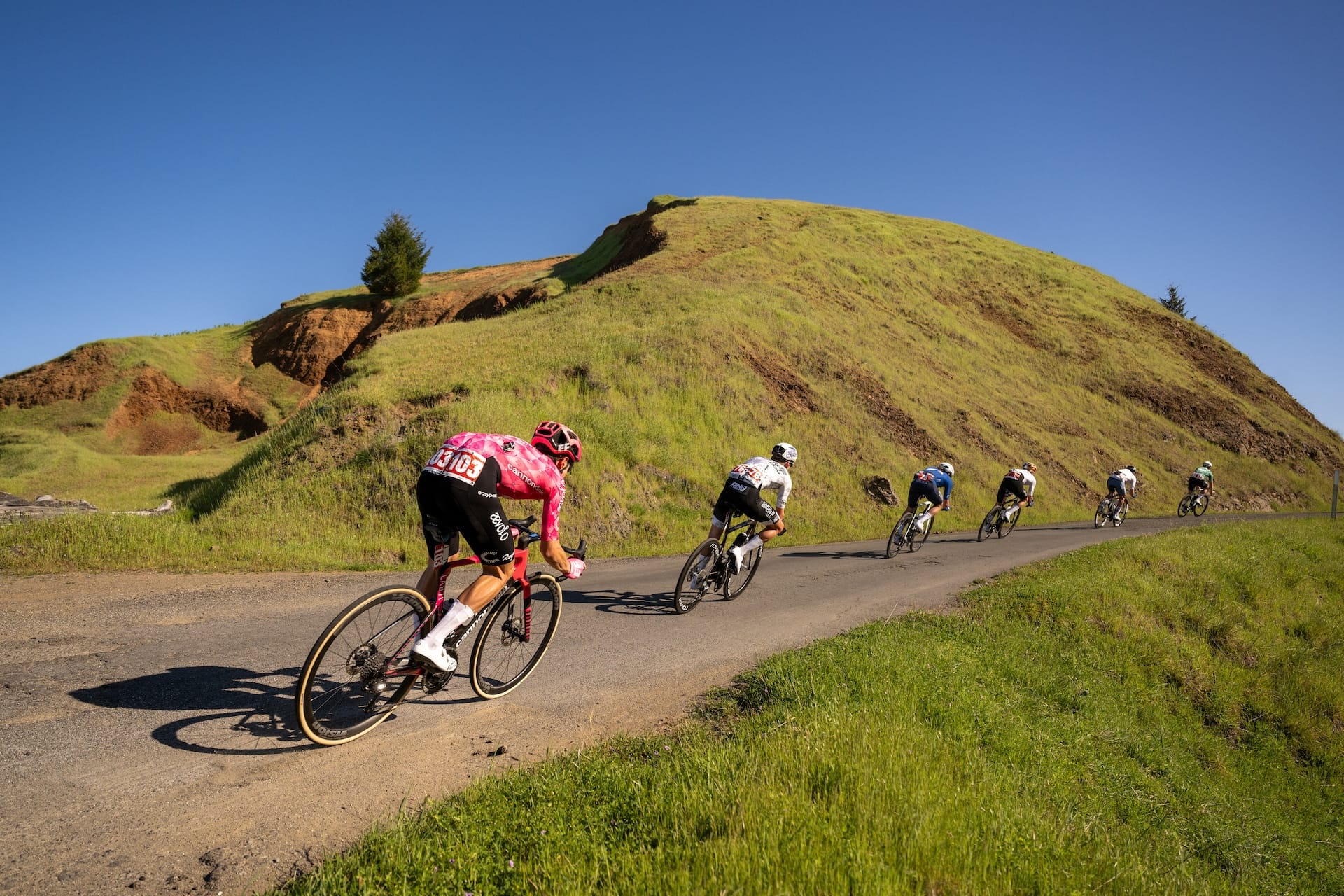Zwift has announced that the virtual cycling brand will continue to sponsor the Tour de France Femmes for an additional year, taking their original contract from four to five years, and securing the race's future until at least 2026.
"We can spend our money in a lot of ways, and we decided to spend it on this," said Kate Veronneau, director of women's strategy at Zwift, in an interview with Cycling Weekly. "This investment is an extension of our mission to create more space in the sport, to do things differently. It's clear that the women's pro peloton was ready for this exposure.
"This race has exceeded everybody's expectations and we're thrilled with the results. The visibility we get from just the content created, the media, the attention of this race, the viewership is phenomenal. This puts our brand and our values front and centre."
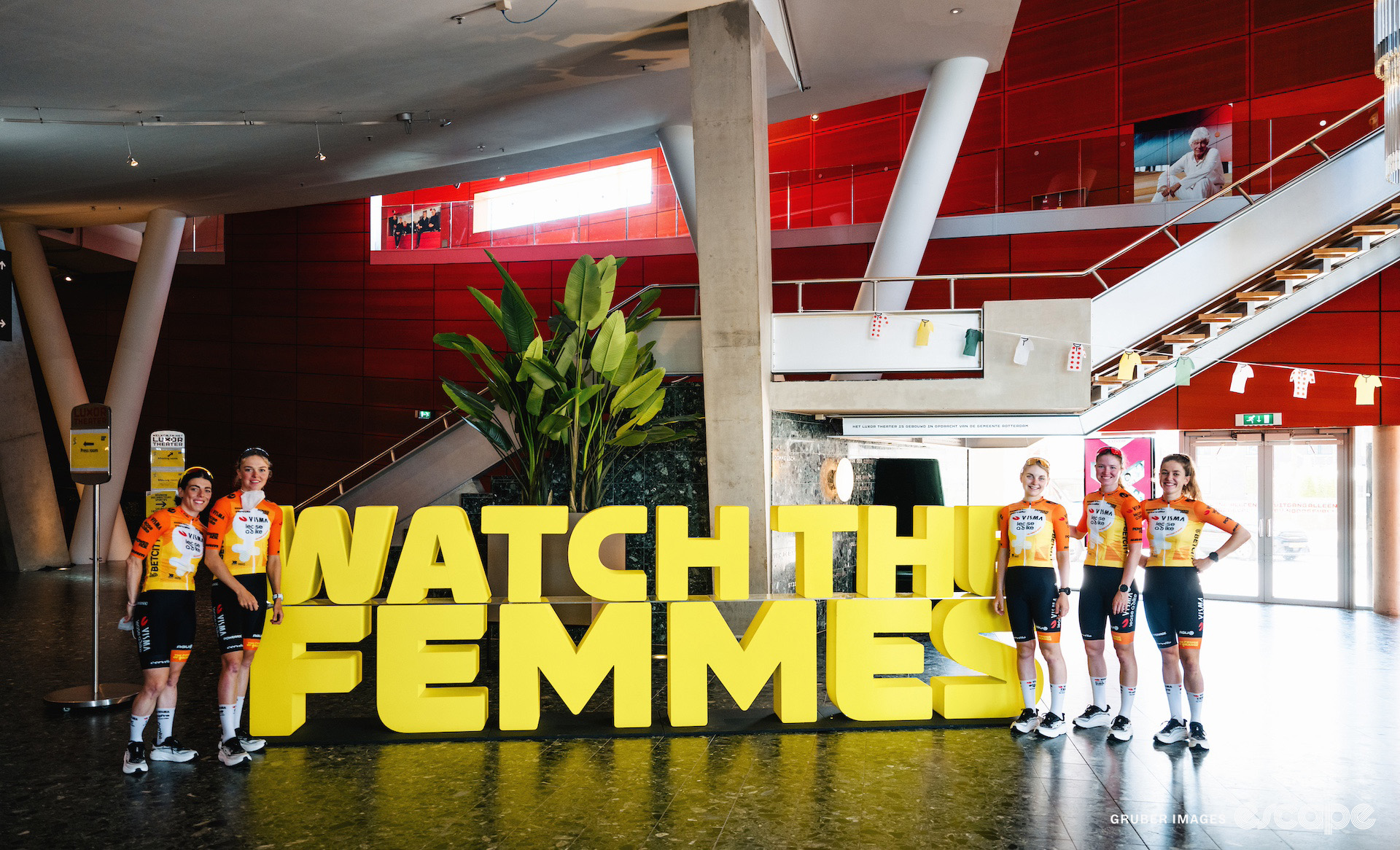
Though ASO (Amaury Sports Organisation) organises the Tour de France Femmes, like its counterpart for the Hommes, Zwift has been instrumental in sustaining the event's existence since the reincarnation of a Tour for women debuted in 2022. Many of the sponsors are the same as for the men's race – the jersey sponsors are all the same, including banking company LCL for the yellow jersey – but Zwift's investment provided stability and commercial exposure that has launched the relatively young race to the top of the pile in three short years.
After another successful edition in 2024, thoughts turned to the future and – that eternal question – will the money still be there in the years to come?
The good news, for Zwift and the world of cycling, is that the company's return on investment has been more than just the realisation of a sort of passion project. They've also helped bring ASO round to the idea, the Tour organiser having historically not been particularly enthusiastic about investing in women's cycling.
"With A.S.O, to be perfectly frank, it needs to work in their portfolio, as they run the highest profile races,” said Veronneau. “Seeing the impact, seeing the fans and the viewership numbers, I think that we've successfully convinced them that women's cycling is a credible, exciting opportunity. This is what fans want. It not only makes them look good, but it achieves their business objectives."
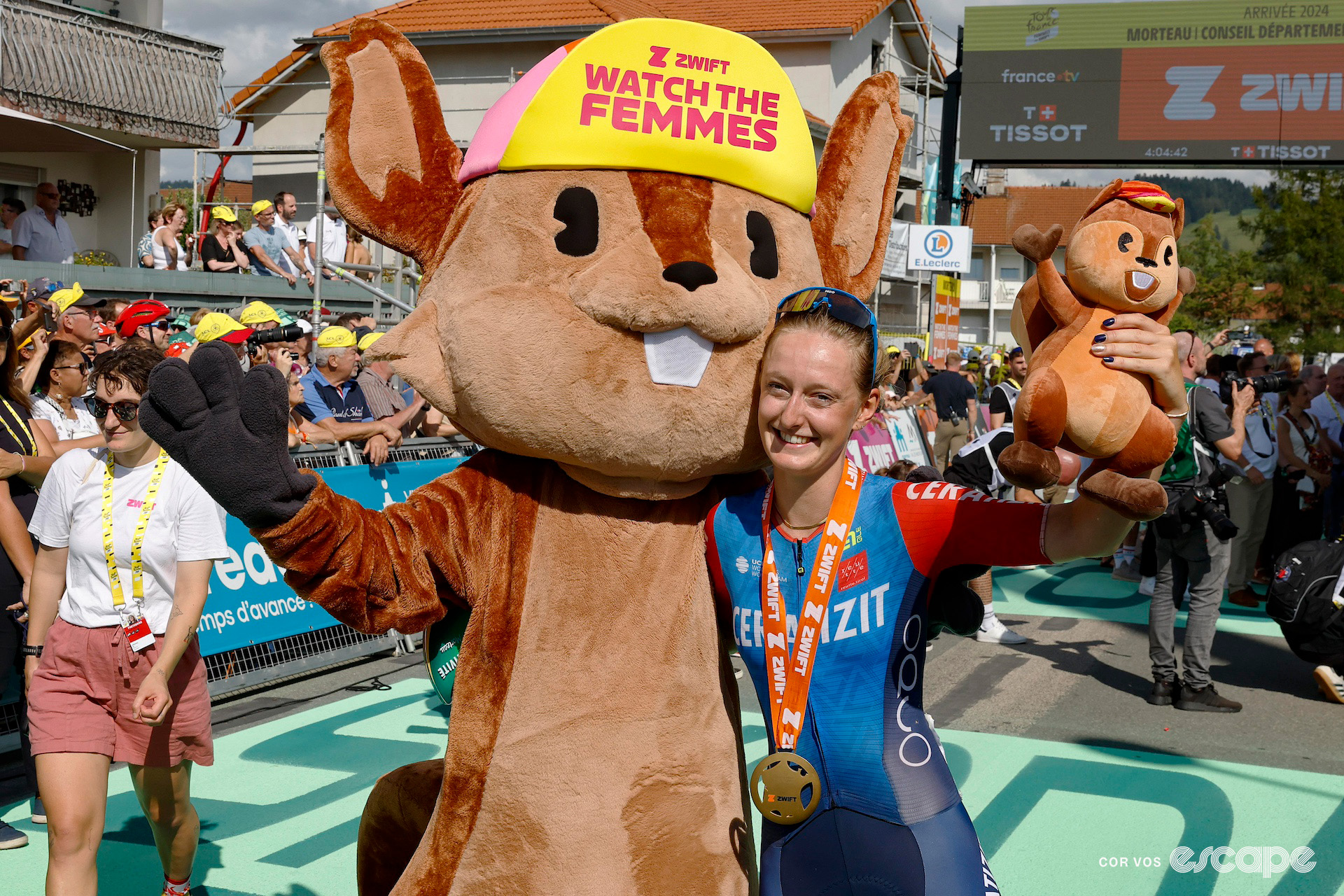
The Tour de France Femmes has become a key part of Zwift's broader strategy, drawing more attention, inspiring more women and girls, and decreasing their own gender gap. That's where the tagline 'Watch the Femmes' comes in, which started in the Zwift Academy programme and built through the pandemic – where virtual cycling thrived and Zwift's relationship with ASO began through a virtual event – leading inexorably towards their involvement in the real-life Tour.
"I think we were the perfect partner to come on board as title sponsor because we're not just sponsors: we are women’s cycling’s biggest fans,” Veronneau said. "We never wanted to just put our name on it. We really wanted to build this movement."
And it worked. Not only did the race draw fantastic interest with more than 23 million viewers worldwide, but Zwift itself also saw its female users increase by 8.9% in 2022 alone.
"I think it’s good business. Look at how many eyeballs we’re getting on a per-day basis," said Zwift CEO Eric Min. "The opportunity for us is that there's just so much upside on the women's side compared to the men's side – so much headroom in terms of growth, investment, viewership, and women's participation. This is the obvious place to invest if you're a consumer brand ...
"As women's cycling grows, that growth is reflected in our growth."
Min and Veronneau are keen to emphasise the enduringly positive impact the Tour has had on both their own bottom line and the sport's exposure. And it's likely a key reason Zwift came out of the pandemic so well compared to some of their rivals who saw interest dip significantly when the world was released from their pain caves. This comes not just as a result of the direct commercial impact from the race itself, but the value seen by potential and existing subscribers who appreciate what Zwift are doing by supporting women's cycling.
"Sponsoring the Tour is one of the most exciting things that we do," Veronneau said. "We're really proud of it. There's no reason to stop now."
There's still work to be done, equity to be achieved, more fair prize money to be realised, not to mention broader and better coverage, but Zwift promises to keep working to keep the Tour de France alive and thriving.
Did we do a good job with this story?

